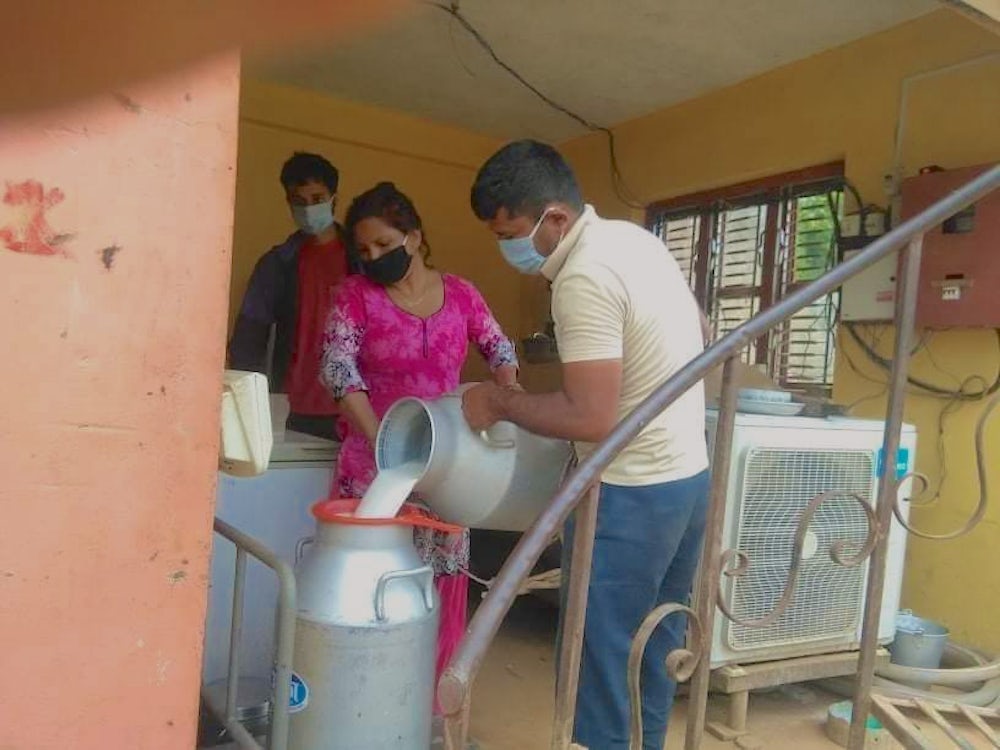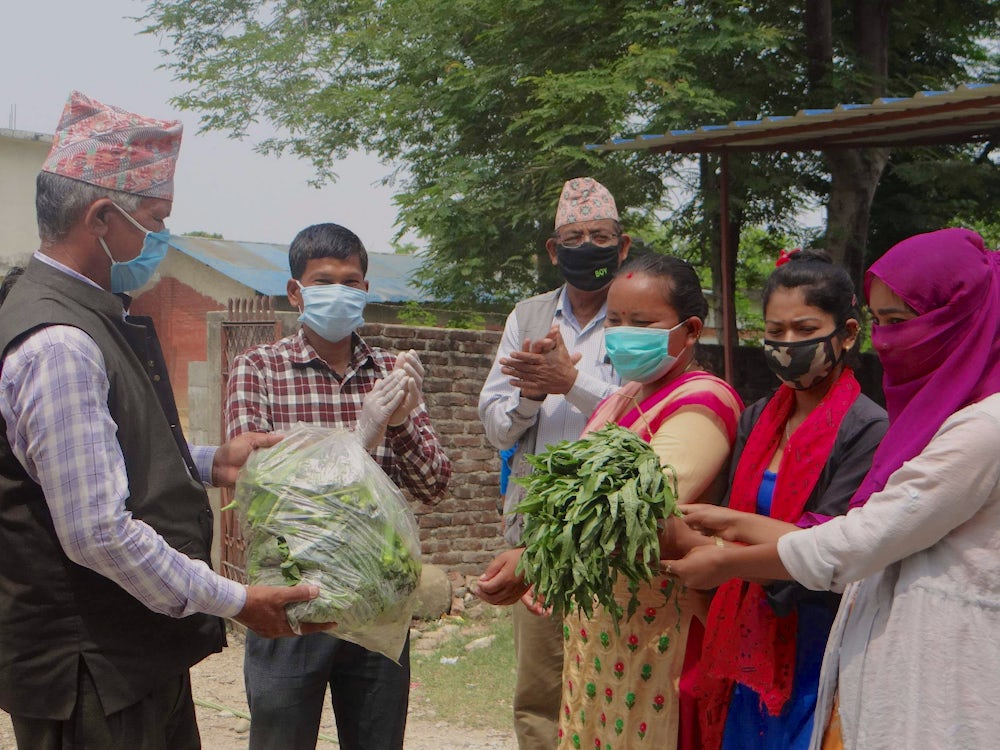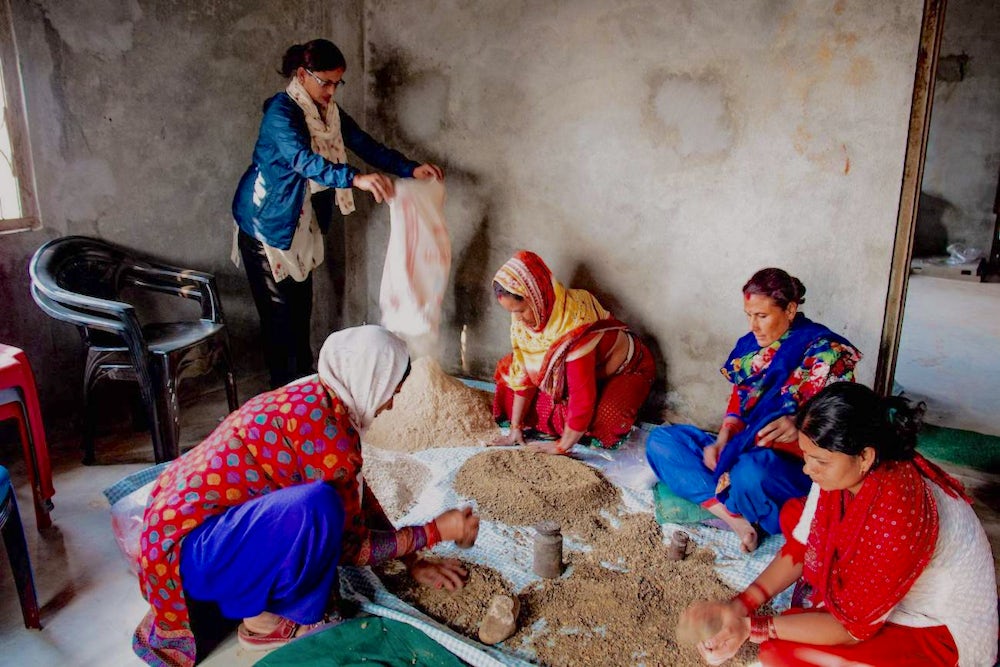For nearly three months, the government of Nepal implemented a strict lockdown to combat the spread of COVID-19. And while it slowed the spread of the virus, it also put a tremendous economic burden on many families nationwide. As of June 15, the country transitioned to a “soft lockdown,” easing some restrictions such as allowing private vehicles to operate on an odd/even-day scheme. But the economic effect is already being seen.

At the onset of pandemic, the majority of migrant laborers from Nepal returned home, meaning that remittances, the source of more than a quarter of the country’s gross domestic product, dried up nearly immediately. Exacerbating the situation, families of migrant workers usually don’t have savings to bolster themselves in times of distress. And because the government of Nepal requires people arriving from abroad to spend 14 days in quarantine, returning migrant workers generally stay in quarantine centers, converted buildings that many say are in poor condition and unsafe.
In such trying circumstances, Nepalese farmers are supporting their neighbors. Established just four months ago, the Heifer-supported Laligurans group in Baijanath Rural Municipality collected fruits, vegetables and more than two pounds of rice from each of their group members and to give to a quarantine facility. Similarly, members of a different group of Heifer farmers in Baijanath Rural Municipality, Ward 1, utilized their monthly savings to buy and deliver soap and toothpaste to people staying in quarantine sites. Ward Chairperson Roop Bahadur Malla, said, “I am thankful for the groups who have come out to help. Every small contribution makes a big difference in this dire situation.”

Farmers themselves have faced a significant amount of adversity during the lockdown, especially when travel was nearly completely restricted, and they could not transport their produce to markets. During the stricter phase of the lockdown, Heifer Nepal supported partner cooperatives in acquiring government transport passes.
In Newalpur, one cooperative used their pass to establish an agri-ambulance to collect vegetables from farmers and get them to markets. “I was so worried that all my produce would be spoiled,” vegetable farmer Bishnu Timalsina said. “I had been having sleepless nights and was so stressed. As soon as I heard that the Cooperative would be collecting and selling the vegetables, I have breathed a sigh of relief.”
Farmers in Falebas Municipality raise close to 180 cows and collectively produce up to 260 gallons of milk every day. With a complete halt in transportation early in the pandemic, the Harabhara Social Entrepreneur's Women's Cooperative found themselves in dire straits, with the dairy buyer unable to collect the milk from farmers in a timely manner. After acquiring a travel pass for the transport vehicle with support, the milk from the area is finding its regular market in Pokhara 40 miles away. The farmer-owned agribusiness also ensured preventive measures by advising its members to follow social distancing norms, wear masks and install a handwashing facility on the premises. To support the local government, the cooperative also donated 10,000 rupees, or $83, to the municipality's COVID-19 response fund.

Deeplagan Women's Entrepreneurs Cooperative used their clout in the community to arrange for one of its community members to travel across the country to attend his mother’s last rites. Deepalagan also provided food to his family to support them during a particularly difficult time.
With the transition to the soft lockdown, the government has allowed opening of businesses and offices but not resumption of public gatherings in shopping malls, religious services or events. Businesses are open and running with limited occupancy, meaning Heifer’s cooperatives are starting to resume some of their regular activities.
But just as some challenges are easing slightly due to the soft lockdown, others are arising. The country’s monsoon season occurs this time of year, which poses an additional risk, especially as COVID-19 limits many services. According to Nepal’s Ministry of Home Affairs, nearly 1,000 people lose their lives due to monsoon-related disasters every year, with the annual damage exceeding $58 million. Additionally, a swarm of millions of locusts passed over Nepal’s southern border on June 27. Although the swarm has dissipated significantly, about 2,800 acres of crops in the country have been affected by the insects.
Through ongoing distance communication, Heifer Nepal’s project team is regularly communicating with the project partners, communities and cooperatives to keep updated about the situation and prepare plans to support in the context of COVID-19 and other ongoing challenges.